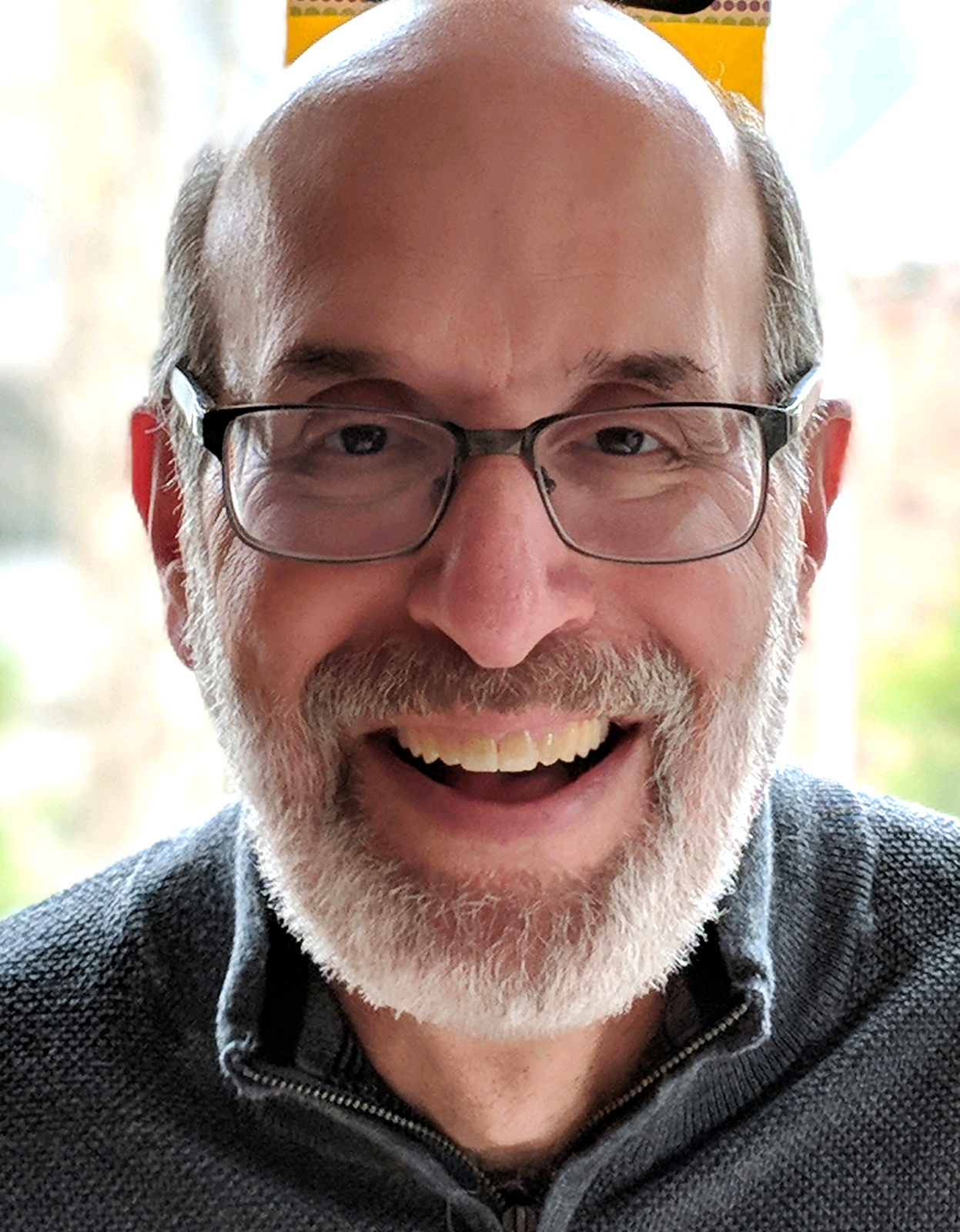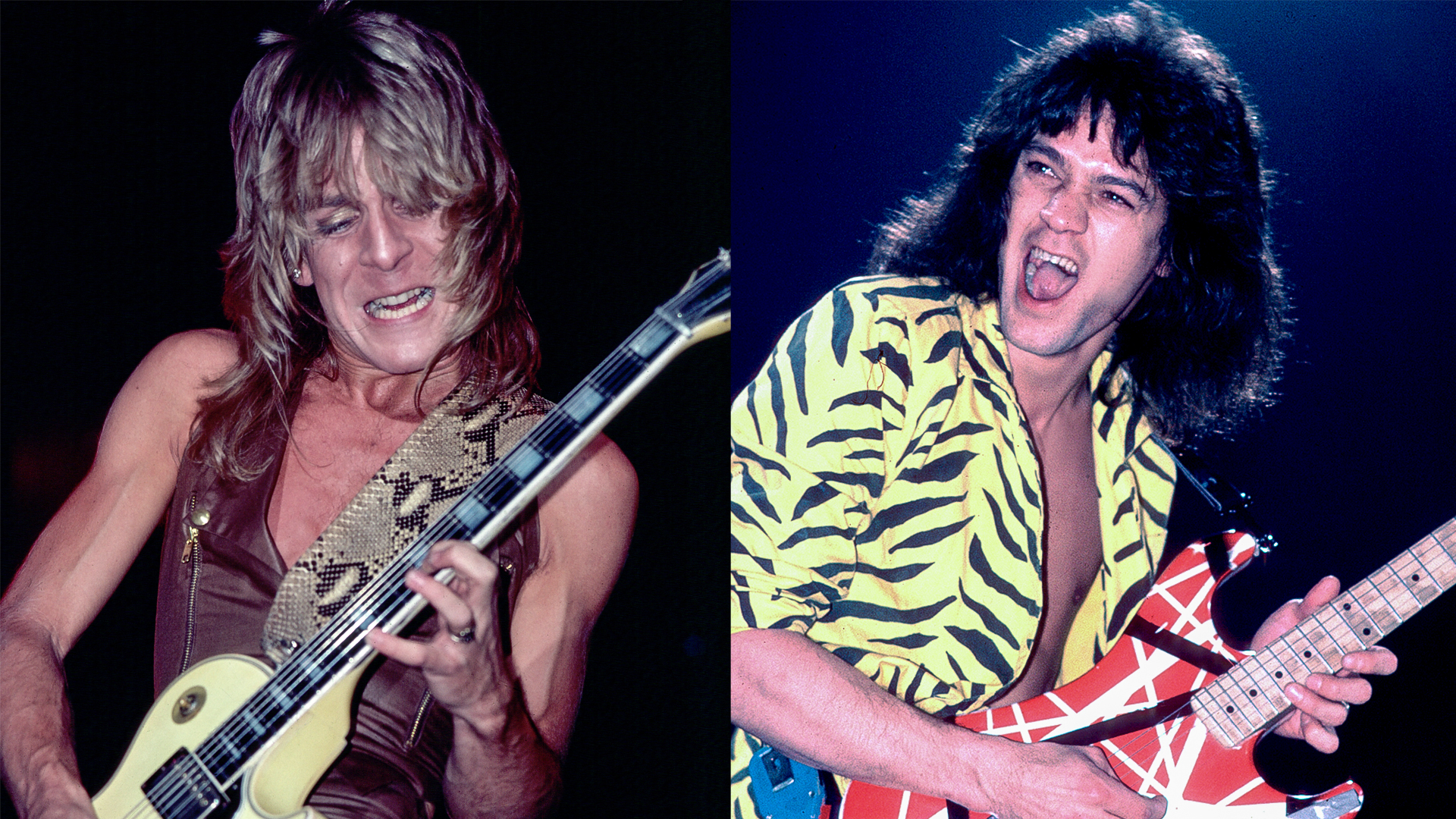“One night we were playing and in walks Pete Townshend.” The Doobie Brothers’ Patrick Simmons on the night Townshend picked up a guitar after a gig with the Who
The Doobies’ extended lineup — the first with both Michael McDonald and Tom Johnston — is getting ready to hit the road in June
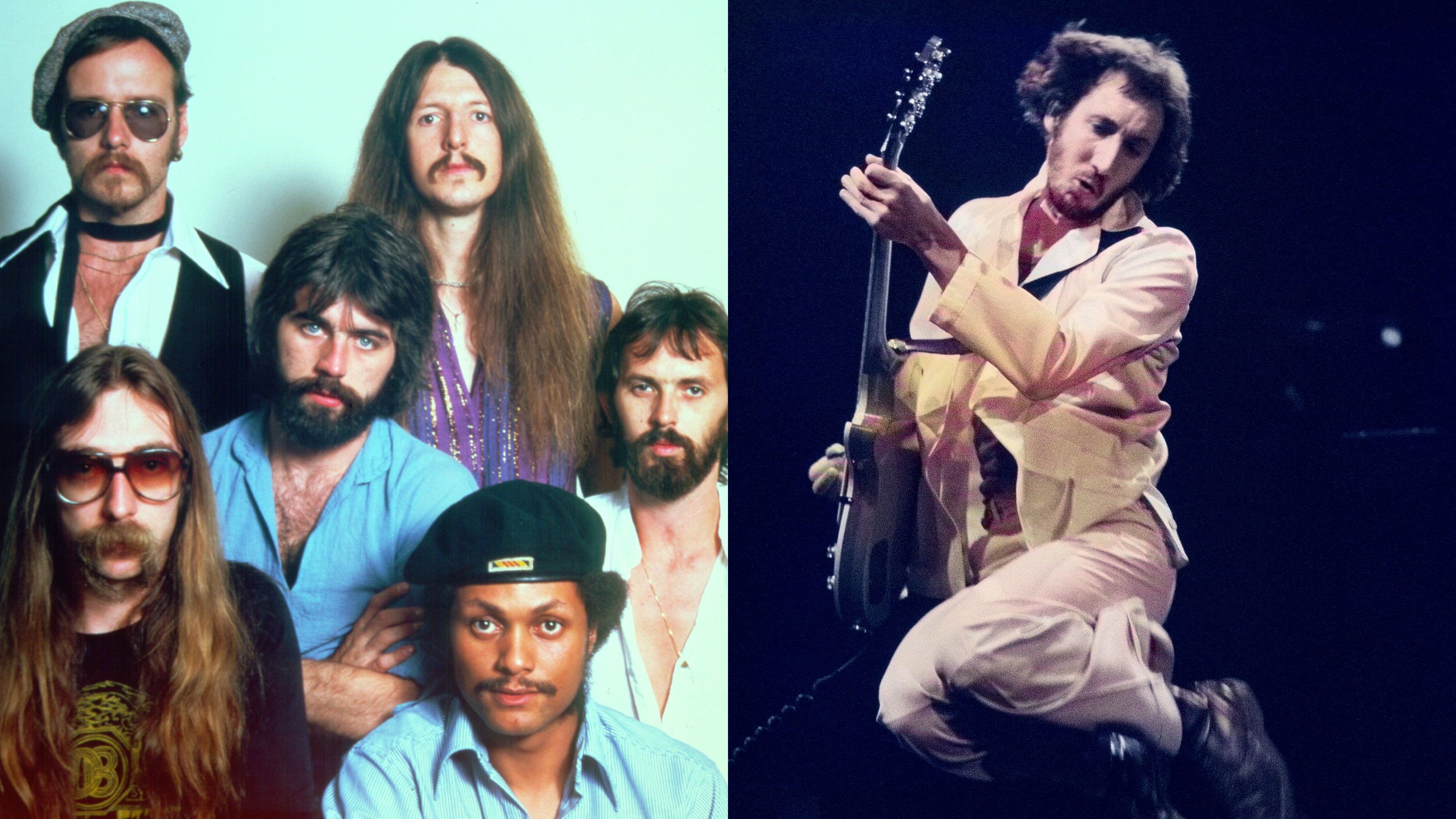
All the latest guitar news, interviews, lessons, reviews, deals and more, direct to your inbox!
You are now subscribed
Your newsletter sign-up was successful
Patrick Simmons knows better than to even try to guesstimate how many gigs he’s played — 55 years of ’em, of course, as part of the Doobie Brothers.
It’s a tally that’s only being added to as well; Simmons and his Brothers hit the road again starting June 6 in New York City — to celebrate the release of a new album, Walk This Road — and continuing through Sept. 18 in the U.K. and North America.
Walk This Road is the follow-up to 2021’s Liberte, and the first to include keyboardist and singer Michael McDonald since One Step Closer in 1980. More strikingly, it marks the first time since 1976’s Takin’ It to the Streets that Simmons, co-founder Tom Johnston and McDonald, who joined the Doobies in 1975, have worked together on an album.
“Mike was just kind of brought in as a sideman to sing backgrounds and play keyboards,” Simmons tells us.
At the time McDonald joined, in late 1975, Johnston was dealing with a bleeding ulcer that kept him off the road. McDonald was enlisted at the suggestion of Jeff "Skunk" Baxter, who had worked with the singer while recording with Steely Dan.
“There was the expectation that Tom would return and Mike might stay on," Simmons explains, "but not that he would be as influential in the band as he became."
McDonald, of course, led the Doobies to their greatest fame with songs like "Takin' It to the Streets," "Minute by Minute" and "What a Fool Believes."
All the latest guitar news, interviews, lessons, reviews, deals and more, direct to your inbox!
Probably the biggest perk is having a chance to add some new tunes and challenge ourselves to do something different"
— Patrick Simmons
“I love what Mike does and what he brought to the band. We never really got to make one with everybody involved like this. I had incredible expectations; and in the end they were more than fulfilled.”
McDonald, of course, has been back and touring with the Doobies — which also includes multi-instrumentalist John McFee since 1979 — since 2019, in time for the group’s 50th anniversary tour and Rock and Roll Hall of Fame induction in 2020. And with Walk This Road, produced by John Shanks, Simmons promises that the concert repertoire will be expanding — with the Mavis Staples–featuring title track and beyond.
“Probably the biggest perk is having a chance to add some new tunes and challenge ourselves to do something different,” Simmons explains. “We’ve been performing ‘Walk This Road’ for awhile now, but I think we’re gonna try to bring two or three more into the mix. It’ll be nice to have that opportunity, and we’re just happy to have it come out and hopeful people will like it.”
And with the road looming again, it seemed an opportune time to ask Simmons about what have been the best and worst gigs from all these decades of Doobies concerts. Simmons has two of those, both of which involve special guests.
The Best: Pete Townshend
“Way back, probably 1971 or something like that, we were playing a place called North Beach Revival in San Francisco. It was a cabaret, so the night started at midnight or one o’clock in the morning, and then you’d play all night.
“We would play there with all these incredible people. Neal Schon had a band back then, and the Tubes — they weren’t the Tubes at the time but it was Fee Waybill and those guys — they’d do a set, then we’d do our set and play late.
“One night we were playing and in walks Peter Townshend. He walks over and goes, ‘Hey guys, I just got done playing at the Oakland Coliseum,’ or wherever, ‘and I was looking for somewhere to jam.’ Tommy had a Gibson SG, which was the electric guitar that Townshend was playing at the time. He goes, ‘Oh man, you got an SG there. Can I play that?’
“So he sat in and we started playing. But even before he picked up a guitar, he just came up and stood there next to us onstage. We were banging out some hard rock thing and Pete was, like, banging his head on John Harman, the drummer’s, cymbal. Then he took Tommy’s guitar and starts blasting away, and we were all turned up to 11. So that was a great moment.
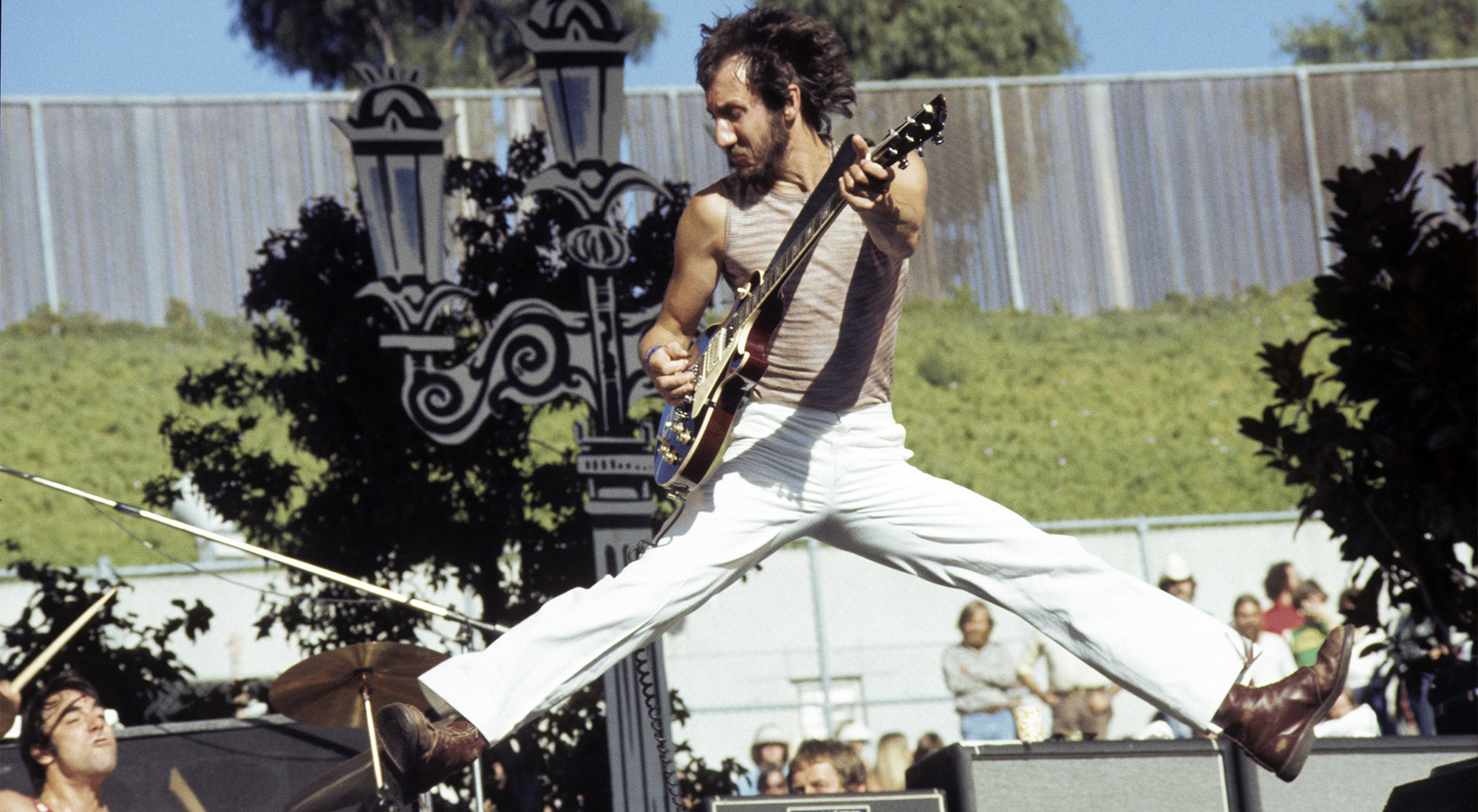
“Another time, the same era, we were playing this place in downtown San Francisco called Keystone Corners, and we were opening for John Lee Hooker. We played night after night with John Lee. And one night we were playing and in walks Johnny Winter. So John Lee is on stage introduces Winter, and he steps up and straps on a guitar. Then John Lee looks at us, ’cause we were just standing there, watching, and he goes, ‘Come on you guys, get up here. We’re gonna jam!’
“So I’m up there onstage with Johnny Winter, and then in walks Elvin Bishop. He grabs a guitar and steps up, so it’s me, Tommy, Elvin Bishop, John Lee Hooker, Johnny Winter… all the guys onstage, and John Lee’s band is up there and we’re all jamming, playing the blues together. That’s one I’ll never forget.”
The Worst: The "Hot Girl" Signal
“I would say the worst night I ever had was Tommy’s last gig with the band of 1975. We were playing a big show [at Chicago Stadium, on September 19] and getting ready to go onstage when the word comes back that Tommy’s not here, and he’s not coming. He was in the hospital downtown. Something was happening with his ulcer, and he wasn't gonna make the gig.’
“We had, like, eight or nine thousand people waiting for us to go onstage, and I say, ‘Well, we can’t do the gig. Tom’s not here. I don’t know how we’re gonna do this.’
"The road manager is telling me, ‘These people are here. They bought tickets,’ but I go, ‘Well, we’re gonna have to go make an announcement that we’re not gonna be able to play the gig.’ I was just tied up in knots.
Jeff goes, ‘You sing the songs, I’ll play whatever solos. Just give me the "hot girl" signal.’"
— Patrick Simmons
“Then Jeff Baxter walks up to me and goes, ‘Pat, we can do this.’
"I said, ‘Jeff, you’re out of your mind,’ and he goes, ‘No, you sing the songs, I’ll play whatever solos. Just give me the "hot girl" signal.’
"This was the 70s, and we used to have this signal: If one of us saw a hot girl, we’d blow out our cheeks and everybody would look.
“So I’m telling Jeff, ‘You’re crazy,’ and he says, ‘No, seriously, we can do this. You’ve got this.’
“I’m thinking, Oh my God…’
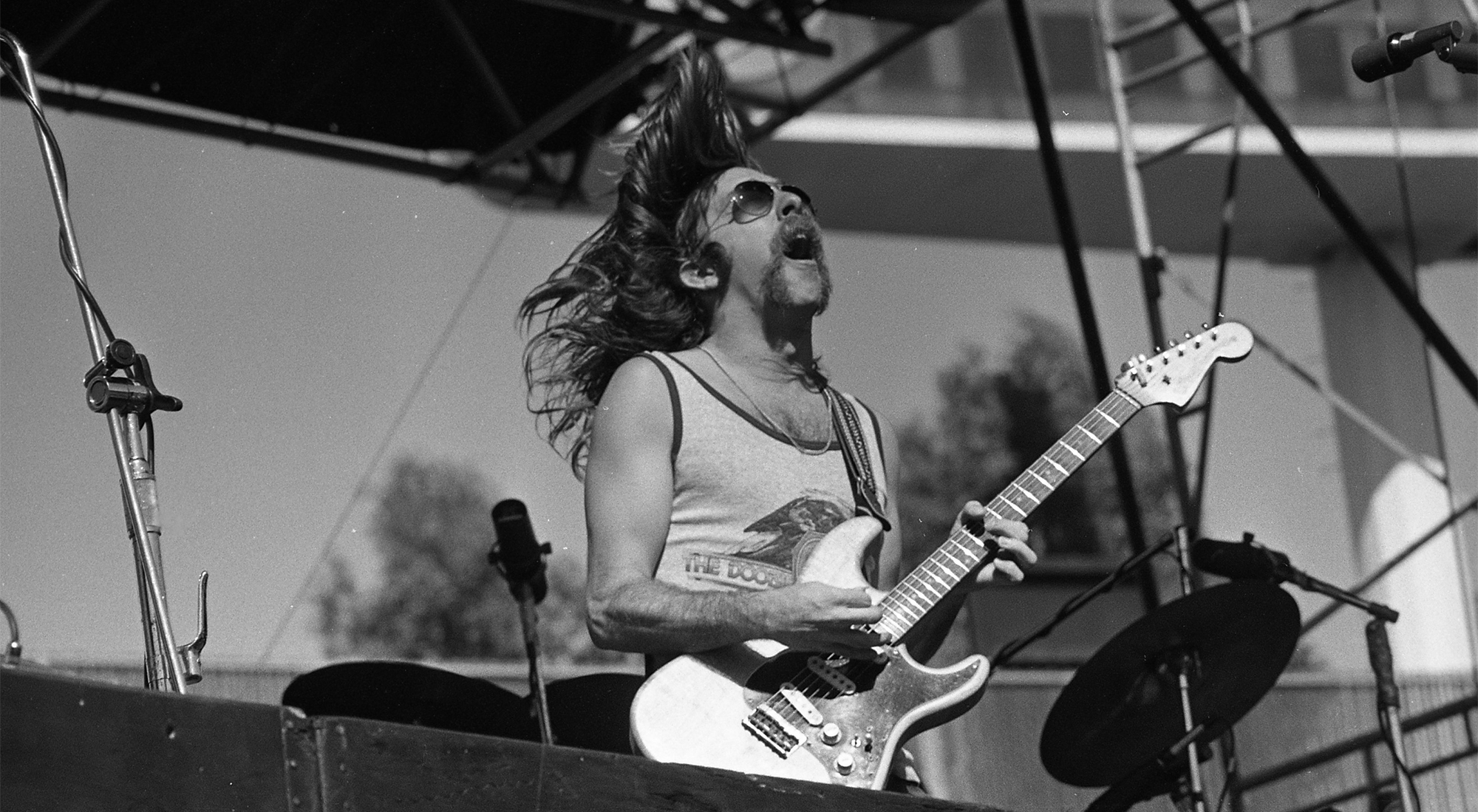
“So we go out on stage and I get up to the microphone and go, ‘Tom isn’t gonna be here tonight. We were gonna cancel the gig but we felt we should come out here and play. Anybody that wants their money back, just let ’em know at the box office’ — we had already talked to the promoter about that — ‘but if you want to stay, we’re gonna do our best to perform.’
“So we went up there and played the set. There were a few moments where I probably had to make up some lyrics, but I knew most of Tommy’s songs.
“And whenever it came to a solo I would look over at Jeff and puff my cheeks out and he would take the solo.
“We got to the end of it, and I would say 99 percent of the audience stayed for the show and gave us this incredible response at the end. We left the stage and they all stood there, applauding, and they wouldn’t leave. We came back, did an encore, then left again and they stood there still standing and gave us a second encore. I think we played a song we’d already played ’cause we ran out of material we had rehearsed.
“So it was the worst night ever, because it was just horrible, scary, frightening. In the end it turned out good, but I’ll never forget. Even now, telling you about it, I’ve got PTSD.”
Gary Graff is an award-winning Detroit-based music journalist and author who writes for a variety of print, online and broadcast outlets. He has written and collaborated on books about Alice Cooper, Neil Young, Bob Seger, Bruce Springsteen and Rock 'n' Roll Myths. He's also the founding editor of the award-winning MusicHound Essential Album Guide series and of the new 501 Essential Albums series. Graff is also a co-founder and co-producer of the annual Detroit Music Awards.
